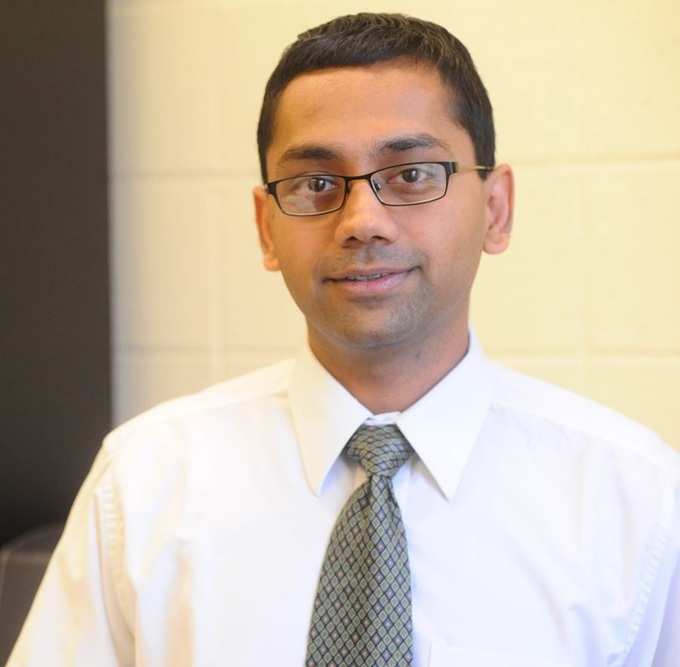 "A lot of what I do today is because of the foundation I received at
"A lot of what I do today is because of the foundation I received at "The Indian education system has a very strong foundation," he says.
41-year-old Kartik has "developed technology that can transform waste water to a resource for useful products, such as commodity chemicals, energy sources, and fertilizers."
However, it is not the first recognition he has received. He got a $1.5 million grant from the Bill & Melinda Gates Foundation back in 2011 for developing a transformative new model in water and sanitation in Africa.
“Clean water and sanitation are global issues. The model that is being followed widely in developed world for providing clean water and sanitation is fairly resource intensive and it works nicely here,” he says.
However, what bothers him is that there are several billion people who do not have access to such things around the world.
Years ago, he thought to himself: “can we do something that guarantees access to clean water and sanitation to the world?”
As his efforts in sustainable waste water treatment and sanitation continued, he found his answer in persistent research and efforts to understand the challenges that were being faced worldwide, and continue to be global and societal concerns even today.
"Clean water from waste form just doesn’t need money. It needs energy, chemicals, technology, access to technology in whatever form. It also needs technical education and know how. These things, individual or combined, are not available around the world for some reason,” he explains.
Kartik, who has a lab in New York City to study microbial communities in natural and engineered systems, thus used microbial ecology, molecular biology and engineering to turn wastewater, sewage, and other "waste" streams from problematic pollutants to valuable resources such as fertilizers, chemicals and energy sources, in addition to clean water.
Already having worked with treatment plants around the world on waste conversion and energy production technology, Kartik says his lab focuses on both “technology development and also monitoring and interrogating as to who are in reactors, what are they doing and at what rate are they doing it to come with fool proof solutions to issues of global and societal concerns like energy, nutrients, food security.”
However, the challenge, he says, also lies in monetizing it properly.
Also an associate professor at the
"In the past two three years, the students have gone from designing treatment plants and researching on it, to designing resource recovery technology now. So, the innovations have also affected advancement in education and young minds can use this knowledge for further such innovations,” he says.
He was returning to New York from India after a 24-hour flight a couple of weeks ago when he received an unexpected phone call saying he had been named Mac Arthur Fellow for this year (alongside 24 others), and that he would be receiving a grant of US $6,25,000.
“I wasn’t expecting this to happen to me honestly,” he says.
On asking him what he plans to do with the whopping grant he has received, Kartik says: “It’s good to look at questions that need answers. I will look at such issues of human interest and value and on my way decide where I can appropriately use this money.”